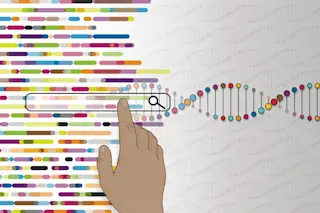Citizen Science Salon is a partnership between Discover magazine and SciStarter.org.
In today’s world, computers both big and small produce vast volumes of data in record time — millions of trillions of bytes worth. It’s so much information that researchers can’t properly analyze all the data produced, and the overload can also lead computers to make mistakes. That’s why researchers are increasingly turning to citizen scientists — members of the public who are willing to volunteer — to help them make sense of data when computers can’t.
Through citizen science, researchers engage the public in gathering and analyzing scientific data. By gamifying their projects, scientists can keep volunteers engaged and having fun as they work.
Phylo lets people help correct errors in an alignment of sequences. (Credit: National Center for Biotechnology Information)
National Center for Biotechnology Information
That’s why researchers at McGill University in Montreal created a citizen science game ...














